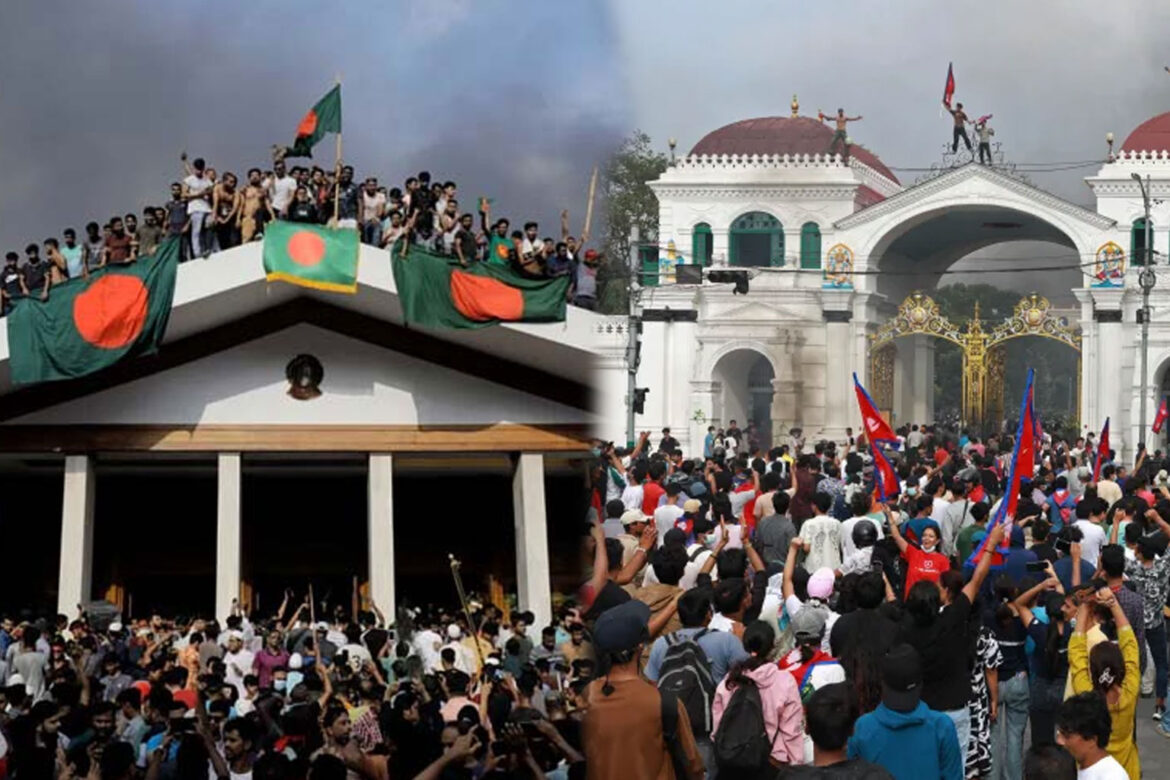In 2025, Nepal found itself amidst intense political turmoil. Parliament was in disarray, governmental decisions faced widespread skepticism, and public demonstrations were mounting with growing momentum. During this unrest, the embattled and publicly discredited prime minister sought refuge—not in any political stronghold—but within a military cantonment. While such a move in times of political crisis is not unprecedented, what stood out was not the act itself, but how the public and political ecosystem responded to it.
Despite the prime minister’s controversial retreat to the cantonment, Nepal’s political parties, civil society, and even agitated citizens refrained from turning their anger toward the military. There were no threats to “tear down the cantonment brick by brick,” no online tirades branding the military as enemies of the people. Instead, the military was seen—rightly—as a neutral stabilizing force, a respected institution meant to uphold national security, not political agendas.
Now contrast that with Bangladesh in July 2024.
As the country teetered on the edge of a political collapse, with the regime increasingly authoritarian and disconnected from public sentiment, it was the military that stepped in—not as a power-hungry force, but as a guardian of national stability. The military, led by a determined and measured leadership, ensured a peaceful transition by facilitating a nonpartisan interim government. It neither usurped power nor meddled in civilian administration but acted in response to an escalating vacuum of governance.
Not only was the former autocratic prime minister denied refuge in the cantonment, but she was also politically and publicly isolated to the point that her presence within the country itself became untenable. The military’s courage, integrity, and patriotism were on full display during this national crisis—and the people saw it.
And yet, the response in the digital public square was, in many ways, disheartening.
Despite the army’s constructive role, a vocal segment of the online space erupted in coordinated character assassination campaigns. From diaspora-based political activists to YouTube “pundits,” including figures like Pinaki Bhattacharya, Elias Hossain, and Kanak Sarwar, the attacks were relentless. They portrayed the military not as a stabilizer but as a “deep state conspirator,” a “contracted force” working against democracy.
Some went even further—circulating slogans about dismantling cantonments, openly threatening military leadership, and normalizing vulgar, inflammatory rhetoric. These weren’t just criticisms; they reflected a broader trend of delegitimizing state institutions for short-term political gain, a trend far more dangerous than dissent itself.
This is where Nepal offers a sharp contrast—and perhaps, a lesson.
Nepal, too, has faced intense political upheavals: the fall of the monarchy in 2006, the drafting of a new constitution in 2015, and more recently, the power struggles involving Prime Minister K.P. Sharma Oli and President Bidhya Devi Bhandari in 2020–21. Yet, in every instance, the military remained firmly apolitical, and more importantly, the public retained trust in the institution.
Even during moments of extreme polarization, the Nepali military was seen as a buffer—not a bludgeon. They were not immune from scrutiny, but they were never targeted with malice. That maturity—both institutional and civic—is something Bangladesh struggles with.
Despite the Bangladeshi military’s consistent service during natural disasters, public emergencies, and the COVID-19 pandemic, political polarization has eroded the public’s ability to view national institutions through an objective lens. Every action is filtered through the binary of party loyalty—either you’re with us, or you’re the enemy.
So why does this happen?
There are several underlying causes:
• Historical baggage: Bangladesh still carries the legacy of past military rule, which clouds current perceptions even when the military behaves responsibly.
• Political expediency: Parties, especially when in opposition, have developed a habit of attacking state institutions to discredit sitting regimes—even if it means undermining the military, judiciary, or election commissions.
• Unregulated digital discourse: Social media offers a space where disinformation spreads rapidly, often without consequence. Anyone can say anything—no matter how inflammatory or false.
• Weak institutional culture: Perhaps most crucially, our collective understanding of institutional integrity is frail. We fail to distinguish between criticism of individuals and attacks on institutions themselves.
To be clear, Nepal isn’t immune to controversy or digital activism. It has its share of provocative commentators and online critics. But there is a noticeable difference: a form of social self-regulation exists. If someone crosses a line—say, by inciting violence against the military—they’re not celebrated; they’re challenged, even by ordinary citizens. In Bangladesh, however, the provocateurs are too often elevated to hero status, further deepening civic confusion.
This is where Bangladesh must evolve.
A modern state cannot thrive when its people treat foundational institutions like adversaries. The military is not the enemy of democracy—in many cases, it’s the protector of democratic order. For that reality to take root, we need:
• Credible media that informs rather than incites.
• An educated civil society that critiques constructively, not destructively.
• Mature political leadership that doesn’t vilify the military every time it’s out of power.
Nepal is not our rival, nor is it a model to be blindly emulated. But it does provide a compelling example of how state institutions can earn and maintain public trust, even amid political upheaval. The difference lies not only in how institutions behave but also in how the people choose to respond to them.
The people of Bangladesh are not against their own country—far from it. But if the bond between institutions and citizens is not carefully nurtured, the state structure itself can begin to falter. We must rebuild that trust—with awareness, responsibility, and above all, a shared sense of national purpose.




